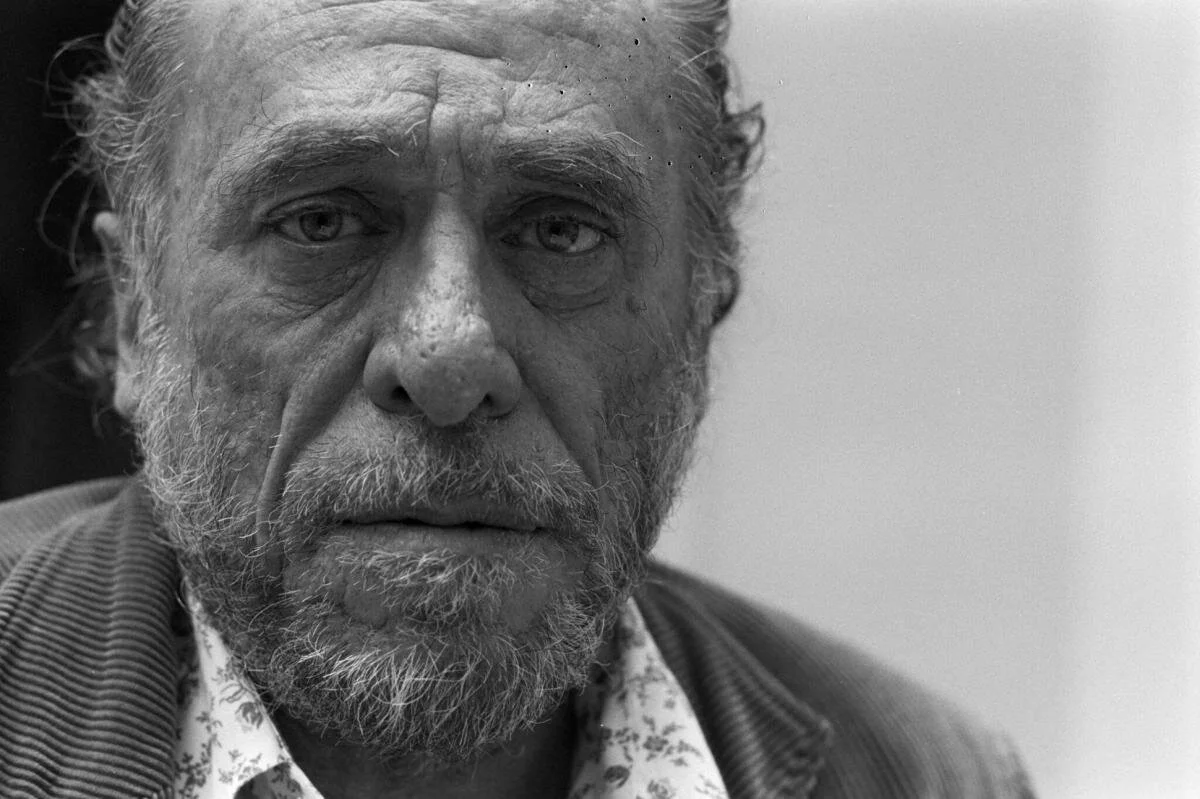Charles Bukowski: Prolific, but underappreciated
It’s not an easy life; nowhere is it an easy life. Sometimes we seek refuge from life’s struggles in constructive manners. Maybe we go to the gym, maybe we go for a run, maybe we spend time with friends and family. Some may, unfortunately, seek refuge in ways that are not so constructive with drugs, alcohol, or worse.
For the everyman who doesn’t look at poetry as an outlet from the day-to-day grind, perhaps it is because they don’t think poetry was written for them. Perhaps they cannot associate themselves with the poetry they were told to read in school because it has no relevance to their lives. Though, I would posit that Shakespeare speaks to the common man, if only it were written in today’s common form.
Photo source: Poetry Foundation
Meet Charles Bukowski.
The late Charles Bukowski was a poet, screenwriter and author. He wasn’t just any writer; he was a prolific writer with over 5,300 poems and stories being credited to his name by the time of his death in 1994. Bukowski is underappreciated as a poet, being best known as an author. So prolific was he that previously unpublished works continued to be published over a decade after his death.
Once he wrote to his editor, “just think, someday after I’m dead and they start going for my poems and stories, you will have a hundred stories and a thousand poems on hand. You just don’t know how lucky you are, babe.”
Though, you perhaps wouldn’t guess he was such a natural and prolific writer from some of his musings, such as his poem “8 count”:
from my bed
I watch
3 birds
on a telephone
wire.
one flies
off.
then
another.
one is left,
then
it too…full poem
Bukowski was born in post-WWI Germany to an American father, a soldier, and German mother in 1920. He immigrated by ship to the United States a little before 3 years of age to Los Angeles, California. Along this timeline of events, Bukowski grew up in depression-era America. His family was of meager means and was subject to harsh and abusive treatment by his father. He started imbibing in alcohol as a teenager, introduced to “the drink” by one of his friends. An unfortunate result of drinking at an early age when the brain has yet to have developed fully is that he ultimately became an alcoholic.
Though John Martin, Bukowski's publisher from 1965 until the author's death, in 1994, in one of the interviews, said that he never saw the Buk (as he called him) drunk. He knew he was drinking, but as just like a lot of writers while he was writing from 8 pm till 2am. He would drink wine. Being very close friend with Charles, John knew that he was frightened of people, especially he did not feel comfortable at a huge party and thus would get drunk there as well.
Bukowski worked blue collar jobs in a dog-biscuit factory, at nights used to place advertising placards in the subway cars, worked in a farming shop, gas station…etc. He began working for the U.S. Postal Service in the early 1950s. By the mid-1950s he had a stomach ulcer that almost killed him, yet he recovered and continued his works. He would leave the Postal Service after only 3 years but would return by 1960.
Bukowski’s writings reveal a true self that is rare in literature, particularly in his time. Bukowski describes himself and his habits in his plainspoken poems.
Bukowski’s works reflect a politically incorrect and profane man that pounded ground to make ends meet…the singer / blue collar representative Bruce Springsteen of writing, with the exception that Bruce Springsteen is at least “PG” enough for the radio to play his works.
The author was so politically incorrect that the United States government established an FBI file on him after the U.S. Postal Service took offense to some of his works.
Yet he had a lot of friends and fans all over the world. His biggest fans were Sean Penn, Elliott Gould, Bono. Once performing at Dodger Stadium in LA, Bono started the concert by saying, “This concert is for Charles Bukowski.”
Sometimes, in life, it is important to realize that, throughout history, throughout society, there are people struggling just like you. Regardless of the country, regardless of the time period, even if it was back in the “good old days”, times were just as difficult. Simpler times they may have been, but that in and of itself presents its own set of problems.
Whenever you’re having a difficult time of things, and you are looking for a place to vent, or someone to resonate with, perhaps you’ll consider Charles Bukowski, the poet deemed “The Laureate of the American Lowlife” by Time Magazine. Just, learn from the lessons written on the tombstones of others and avoid, best you can, the substances that are a good servant but a terrible master.
ABOUT CO-AUTHOR
Nicholas Chudolij is graduate student within American Public University's Space Studies faculty, Astronomy track. Nicholas loves traveling, fishing, competitive marksmanship and playing the flute.
ABOUT CO-AUTHOR
Olha Harbovska is America House Communications Manager. She is Future Leaders Exchange program alumna and received MA in Translation Studies and Contrastive Linguistics from Ivan Franko National University in Lviv.






